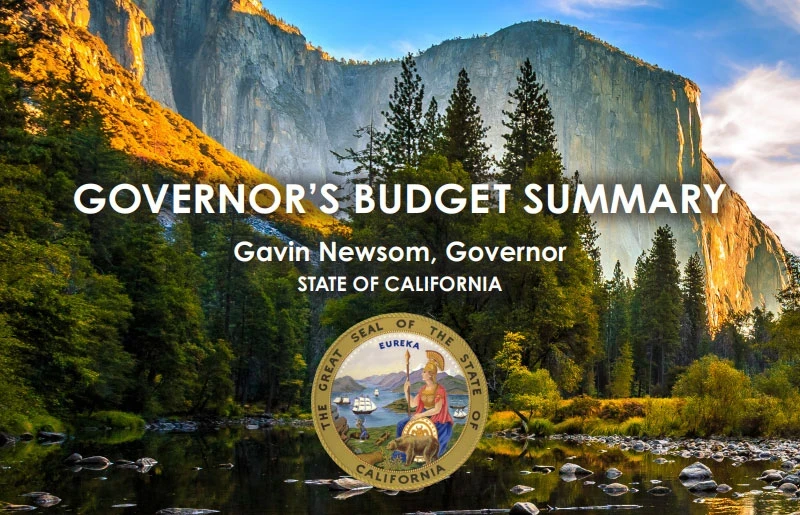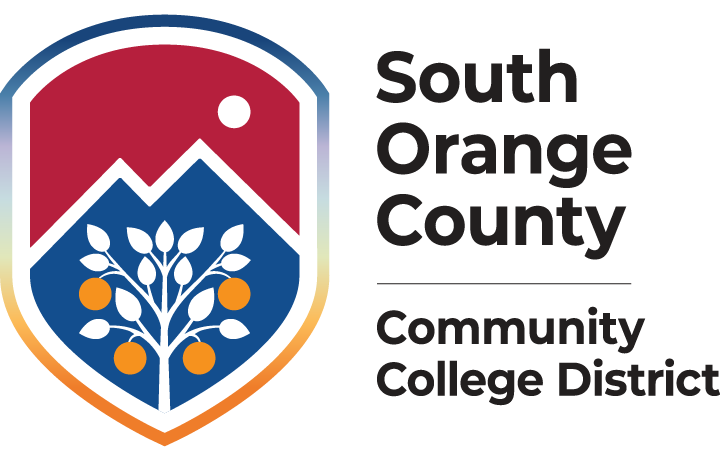
To: Colleagues
From: Ann-Marie Gabel – Vice Chancellor, Business Services
Date: January 11, 2024
Re: Governor’s 2024-25 Budget
Yesterday, Governor Newsom presented his budget proposal for the 2024-25 fiscal year totaling $291.5 billion, a decrease of around 6 percent. The State budget contains an estimated $37.9 billion revenue shortfall due to the delayed tax filing deadline and volatility in the stock market. In order to balance the budget and address this shortfall, the Governor proposes the use of reserves, reductions, internal borrowing, delays, fund shifts, and deferrals. In his message, the Governor stated: “the budget prioritizes the services and programs that Californians depend on most while making necessary adjustments to ensure long-term fiscal stability.” Unfortunately, this means that many of the strategies are one-time in nature and will not be available in future years if the economy does not turn around.
Looking forward, the Governor has proposed several tax changes that would increase 2024-25 tax revenues by a projected amount of $400.5 million. Furthermore, he has suggested changing the laws related to the Budget Stabilization Account and State Appropriations Limit to allow the state to “save more during economic upswings, enhancing the state’s ability to protect vital programs and services during future downturns.” All of these changes would require legislature approval, but the added revenue from the proposed tax changes has been included within the revenue projections.
Community College Specifics
In a welcome surprise, community colleges remain relatively flat from the current year without any major surprises or cuts. The overall State budget includes downward revisions to fiscal years 2022-23 and 2023-24, along with 2024-25 projections, to the tune of $11 billion over the three years. However, the investments made into the various State reserve accounts over the past few years are proving prudent. As a means of avoiding reductions, the Governor proposes to withdraw over $722 million from the Public School System Stabilization Account, while maintaining a $3.8 billion balance at the end of 2024-25. Considering these downward revisions, Proposition 98 projections for K-14 education have increased by approximately $3.5 billion over the prior year revised budget going from $105.6 billion to $109.1 billion (General Fund and local property taxes combined). The community colleges’ portion increased by $179 million over the 2023-24 revised budget going from $12.2 billion to $12.4 billion: resulting in a community college share of approximately 10.93%. The General Fund portion for community colleges is $8.2 billion (a $4 million increase) with local property taxes representing $4.2 billion (a $175 million increase).
The Governor reiterated the commitment to develop a statewide lease revenue bond for student housing and indicated that the proposal will appear in the May Revise. The statewide lease revenue bonds are currently slated for those districts that have already been approved for, and received, student housing funding. There is no further commitment for approval of future student housing projects. Furthermore, the budget eliminates $194 million provided in 2023-24 for the Student Housing Revolving Loan Fund Program and does not propose any funding toward this in 2024-25 or beyond.
The Governor has indicated a commitment to placing a statewide bond on the ballot in November 2024 for community college capital outlay programs. Unfortunately, even though the Chancellor’s Office requested over $335 million for a Common ERP system, no funding was provided for this endeavor.
The major components of the community colleges’ budget and the impacts on our District are as follows.
Unrestricted General Fund:
- $69.1 million (0.76%) cost of living adjustment (COLA). This will provide an estimated $1.5 million increase for our DRAC model.
- $29.6 million (0.5%) for enrollment growth. Depending upon enrollment trends for the District, it could potentially provide $775 thousand in additional funds to the DRAC model.
- $0.94 million (0.76%) cost of living adjustment (COLA) for mandated cost block grant program. This will provide an estimated $7 thousand increase for our DRAC model.
Restricted Funds:
There are no new proposed programs this year; only increases to existing programs. We have estimated the District’s allocations based upon our current percentage of the statewide share.
Ongoing Resources:
- $8.56 million (0.76%) cost of living adjustment (COLA) for Adult Education, EOPS, CARE, DSPS, Apprenticeship, CalWORKS, and Child Care Tax Bailout. This will provide an estimated $90 thousand increase to our programs.
One-Time Resources:
- $60 million to expand nursing programs and Bachelor of Science Nursing partnerships. Any funding allocated will likely be done so through the competitive grant process.
As you know, this is the first step in the budget process for the 2024-25 fiscal year. In the next few days, the Department of Finance will release the budget bill and any related trailer bills and the Assembly and Senate will begin their budget debates. These debates will continue through the May Revise and until a final budget is adopted in June.
The District will use these proposals to begin our own budgeting process working with the District Resources Allocation Council (DRAC). We will continue to monitor the proposals closely and will budget them once funding is assured. Our Tentative Budget will be presented to the Board of Trustees for approval at the June 24, 2024, meeting.
Individuals who want more information on the budget can review the Joint Analysis prepared by the California Community Colleges Chancellor’s Office, Association of Chief Business Officials (ACBO), Association of California Community College Administrators (ACCCA), and the Community College League of California (CCLC), and the Governor’s Budget Summary.
Vice Chancellor Gabel can be reached via email at agabel@socccd.edu.
